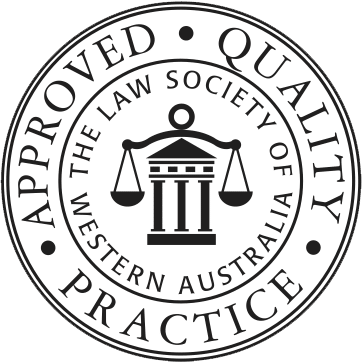The Trials and Tribulations of Being a Self-Represented Litigant in Family Law Proceedings
There is a variety of reasons why someone involved in, or contemplating, family law proceedings may choose to represent themselves. For example, they may be unable to afford legal representation and not qualify for a grant of legal aid; or they may be of the view that they can competently run the case on their own without the assistance of a lawyer.
Whatever the reasons, before a party to family law proceedings launches into litigation, it is important that they at-least obtain preliminary legal advice.
Family law is a highly specialised area of law unto itself which cannot be distilled into “Cliffs Notes” for quick and easy digestion. Furthermore, family law has the potential to intersect with other areas of law including trusts, wills and estates, taxation, and contract law. As such, knowing one’s rights and responsibilities, and how the law applies in particular circumstances can require the skill of an experienced family lawyer.
When deciding whether to represent themselves, a party must also carefully consider whether they:
- Have the time and resources necessary to adequately prepare their matter (acknowledging that preparation for, and attendance at, Court proceedings can be extremely time-consuming);
- Have the necessary legal skills (or the capacity to acquire them “on the fly”); and
- Can speak confidently and coherently to the Judicial Officer hearing the matter.
Obligations and Responsibilities of the Self-Represented Litigant
The so-called “self-represented litigant” has exactly the same obligations and responsibilities in and to the Court as a qualified lawyer. It is therefore their responsibility (among other things) to:
- Prepare and file Court documents within the relevant timeframes and serve them on the other party (or parties) in compliance with the applicable Family Court Rules or Court Order;
- Gather evidence to support their case;
- Find appropriate expert witnesses (e.g. valuers, psychologists) and engage them in compliance with the relevant Family Court Rules;
- Present evidence in Court and make submissions to the Judicial Officer;
- Cross-examine witnesses;
- Adhere to the Rules of Court; and
- Interpret and follow Court Orders.
Personal Cross-Examination of a Witness
Notwithstanding a party’s election to represent themselves, personal cross-examination of another party or a witness is expressly prohibited in certain circumstances where allegations of family violence have been raised.
Personal cross-examination occurs where a party asks questions of another party or a witness directly, rather than having such questions posed by a lawyer. The prohibition exists because personal cross-examination by an alleged perpetrator can expose victims of family violence to further trauma, and may affect their ability to give evidence.
Pursuant to Section 102NA of the Family Law Act 1975 (and the equivalent Section 219AK of the Family Court Act 1997 for de facto proceedings in Western Australia) the prohibition automatically applies where:
- Either party has been convicted of, or is charged with, an offence involving violence, or a threat of violence, to the other party;
- A family violence order (other than an interim order) applies to both parties;
- An injunction under Section 68B or Section 114 for the personal protection of one party is in-force against the other party; or
- The Court makes an Order that the party must not cross-examine the witness personally (and that the witness must be cross-examined by a legal practitioner acting on behalf of the examining party).
Costs Orders in Favour of a Self-Represented Litigant
Generally, in Family Court proceedings each party bears their own legal costs unless the Court forms the view that there are circumstances justifying the making of a Costs Order (requiring one party to pay some or all of the other party’s costs of the litigation). When considering the making of a Costs Order, the Court must have regard to the following matters (to the extent they are relevant):
- The financial circumstances of each of the parties;
- Whether any party to the proceedings in is receipt of assistance by way of legal aid and, if so, the terms of the grant of such assistance;
- The conduct of the parties in the proceedings, including their conduct in relation to pleadings, particulars, discovery, inspection, directions to answer questions, admissions of facts, production of documents and similar matters;
- Whether the proceedings were necessitated by the failure of a party to comply with previous Court Orders;
- Whether any party to the proceedings has been wholly unsuccessful;
- Whether either party has made an offer in writing to the other party to settle the proceedings and the terms of any such offer; and
- Such other matters as the Court considers relevant.
Whilst a Costs Order can be made by the Court whether or not a party is legally represented, there is a general rule in family law proceedings that a self-represented litigant cannot recover costs for their own time spent on litigation (i.e. for lost income).
So, whilst a legally represented party in certain circumstances may have some or all of their legal costs met by the other party, the self-represented litigant even when they have been entirely successful, is only entitled to recover some very limited “out-of-pocket” expenses, such as travel fares, parking costs and other disbursements.
Where can the Self-Represented Litigant get Assistance?
It is not uncommon for a party to family law proceedings to be self-represented and, as such, the Family Court of Western Australia (and the Federal Circuit and Family Court of Australia for proceedings conducted in the other States and Territories) offers individuals assistance in navigating the difficulties of the Court system, including by:
- Providing useful information on the Family Court of Western Australia website (https://www.familycourt.wa.gov.au); and
- Publishing guidebooks for self-represented litigants, including:
- A Guide to Representing Yourself in the Family Court of Western Australia (Property Cases); and
- A Guide to Representing Yourself in the Family Court of Western Australia (Children’s Cases).
Key Takeaways
- All parties contemplating, or involved in, family law proceedings should obtain preliminary legal advice from an experienced family lawyer.
- A self-represented litigant has the same obligations and responsibilities under the Family Law system as a lawyer.
- Conducting litigation can be very time-consuming but a self-represented litigant cannot recover costs for their own time spent on raising and defending proceedings.
- In certain circumstances, the self-represented litigant is statute-barred from cross-examining another party or a witness (in which case that party or witness must be cross-examined by a lawyer acting for the examining party).
- The Family Court of Western Australia provides some useful information to the self-represented litigant, but it cannot provide legal advice.
Let’s meet, and figure it out
For practical advice about what you should do next, please call to arrange a no-obligation initial consultation.

